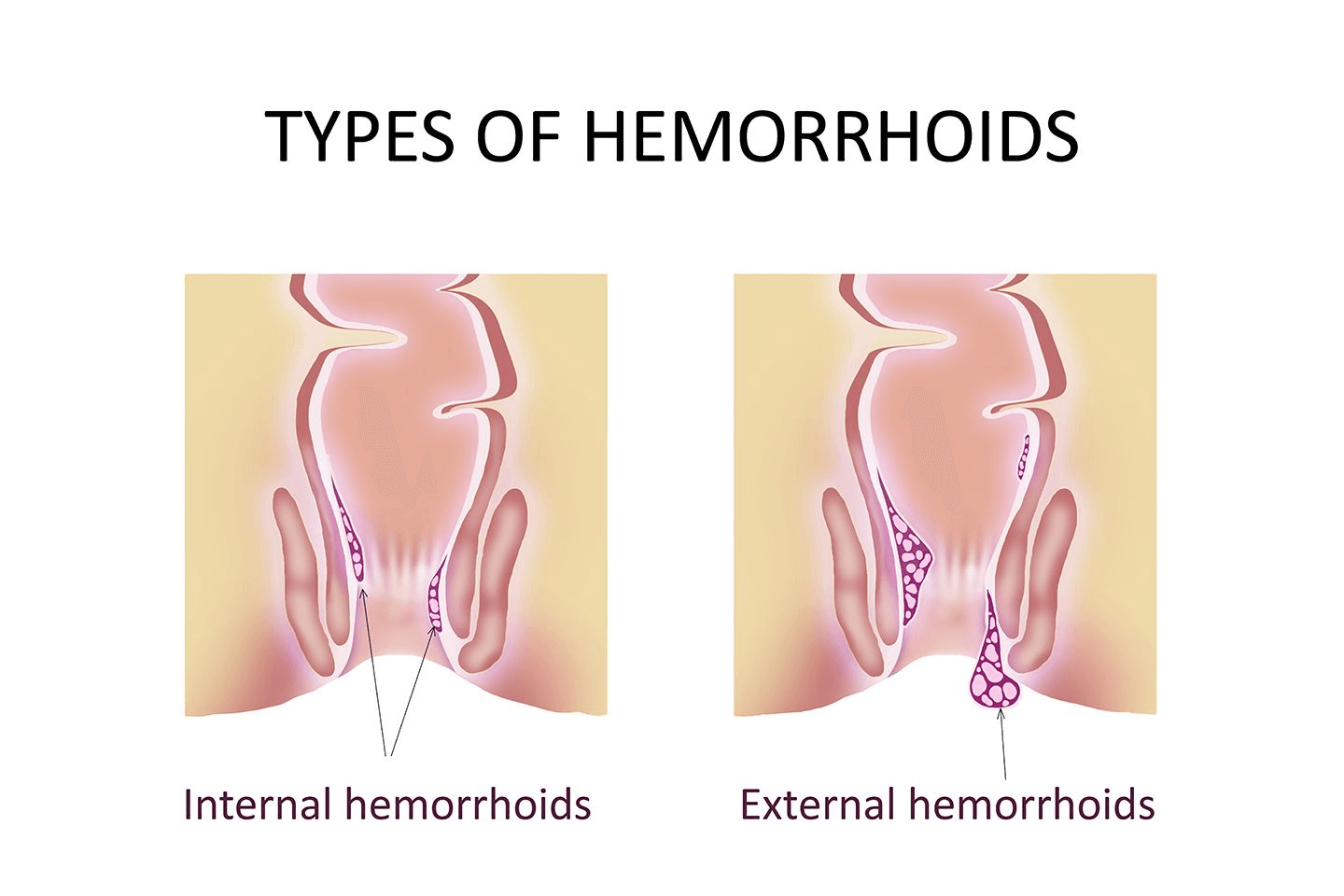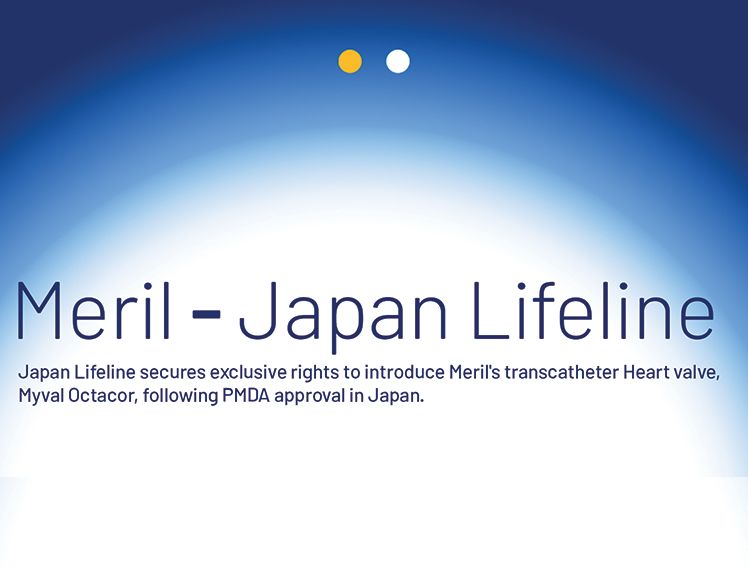
What are hemorrhoids?
Hemorrhoids, also known as piles, happen when the veins of the lower rectum and anus get swollen due to factors that may contribute to their development, like chronic constipation, diarrhea, obesity, straining during bowel movements, and heavy lifting, to name a few. Sometimes the veins get stretched so much that they bulge and get irritated, especially while passing stool. Hemorrhoids can develop inside the rectum or under the skin surrounding the anus. It is a prevalent medical condition, with 3 out of 4 people suffering from hemorrhoids at some point.
Hemorrhoids usually go away on their own, or the symptoms can be soothed with home remedies. Only in critical cases will doctors recommend surgery.
Types of hemorrhoids
There are three types of hemorrhoids:
- External hemorrhoids are swollen veins around the skin of the anus. They can cause itching, pain, and bleeding. Sometimes the bleeding can lead to the formation of blood clots.
- Internal hemorrhoids are swollen veins located inside the anus. You cannot see or feel them, and they are usually painless. You can experience painless bleeding and see blood in your stools or on the toilet paper. Internal hemorrhoids can become painful if they prolapse; in such cases, hemorrhoid protrudes from the rectum. They can be pushed back inside gently to avoid pain and irritation.
- Thrombosed hemorrhoids occur when a blood clot forms in an external hemorrhoid, turning the vein purple or blue. Thrombosed hemorrhoids can cause a lot of pain, irritation, swelling, and a hard lump near the anus.
Causes of hemorrhoids
Multiple factors can be the cause of hemorrhoids. Some of the most common causes of hemorrhoids are straining while bowel movements, sitting for long periods on the toilet, having chronic constipation or diarrhea, being obese or overweight, pregnancy, eating a diet that is low in fibre, regularly lifting heavy weights, and anal intercourse.
Hemorrhoids caused by most of these conditions can be treated at home, but you need to visit a doctor if the condition persists for a long time. Knowing hemorrhoid causes can allow you to take necessary precautions to avoid this condition altogether or prevent chances of recurrence.
Symptoms of hemorrhoids
Symptoms of hemorrhoids depend on their type. Internal hemorrhoids are painless and can only be detected by blood in your stool or if they prolapse. External hemorrhoids are easier to diagnose as they cause swelling, pain, itching, and bleeding in the anorectal area. External hemorrhoids can also cause hard lumps around the anus. The common symptoms that you should know of are:
- An itchy anus
- Hard lumps around the anus that may be sore or tender
- Discomfort or even pain during bowel movements
- Pain when you sit
- Bleeding (usually bright red blood) in your stool
Diagnosing hemorrhoids
Doctors will take you through a few exams to give you a medical diagnosis of hemorrhoids. Some of the tests include:
- In digital rectal exam, the doctor feels any swollen veins or abnormalities, by inserting a gloved and lubricated finger into the rectum.
- Anoscopy uses an anoscope (a lighted tube) to view the lining of the anus and the rectum.
- In sigmoidoscopy, the doctor will use a sigmoidoscope (a lighted tube with a camera) to view the lower part of the colon and rectum to check for swelling.
After these exams, the doctor will prescribe the correct treatment mode depending on the hemorrhoids' severity.
Prevention and treatment of hemorrhoids
You can take the following precautions to prevent and treat hemorrhoid causes at home:
- Eat high-fibre foods: Eating more fruits, vegetables, and whole grains softens the stool and increases its bulk which helps avoid straining and constipation, which are the two common hemorrhoid causes. Having at least 20-35 grams of fibre daily is recommended.
- Drink plenty of fluids: Doctors recommend drinking 6 to 8 glasses of water daily as a hemorrhoids cure to keep your stool soft.
Fibre supplements: Most people do not get the recommended dose of fibre from their daily diet. Over-the-counter supplements like psyllium husk can be used as a hemorrhoids cure. You can also soften the stool by taking laxatives. - Do not strain: Straining while passing stool creates pressure on the rectum, which results in hemorrhoids. Also, avoid sitting on the toilet for long periods as it increases the pressure on the rectal veins.
- Exercise: Daily exercise is one of the best ways to prevent and reduce hemorrhoids.
Types of hemorrhoids surgery
If your hemorrhoids cause only mild discomfort, your doctor can recommend over-the-counter creams, ointments, or suppositories; but in more severe cases, surgery is required.
- Hemorrhoidopexy - (Fixation or immobilization) - Minimally invasive procedure for Hemorrhoids (MIPH) uses a PPH stapler to fix or staple back the hemorrhoidal tissue.
- Hemorrhoidectomy - (Removal, Excision, or Extraction) - Hemorrhoidectomy is commonly used for open hemorrhoid surgery. But it is also used for the procedure performed using PPH stapler as the surgeon removes the prolapsed tissue.
- Hemorrhoidoplasty - (Surgical reshaping) - Laser is used to shrink or coagulate the Hemorrhoidal tissue and there is no surgical cut on any tissue.
Other Non-invasive procedures: Today, doctors prefer non-invasive hemorrhoid cures. Some of the common procedures are as follows:
- Rubber band ligation: Rubber bands are placed at the base of the hemorrhoid to cut off blood circulation. This results in hemorrhoids drying up and falling off on their own.
- Sclerotherapy: Doctors inject a chemical into the hemorrhoid to shrink it. This method is less effective than rubber band ligation.
MIRUS HEMORRHOIDS STAPLER from Meril is ideal to use for minimally invasive treatments of prolapsed hemorrhoids. It is safe and provides superior hemostasis. The stapler is easy to use, making it the doctor's preferred choice. It uses an optimised stable formation technique that aids in less tissue tension and delivers the right amount of compression. This means less discomfort for the patient post-surgery.
In conclusion, hemorrhoids are a common medical issue that can be easily treated with home remedies or over-the-counter medication. If surgery is required, the latest equipment makes it a less painful experience for patients.
SHARE NOW



